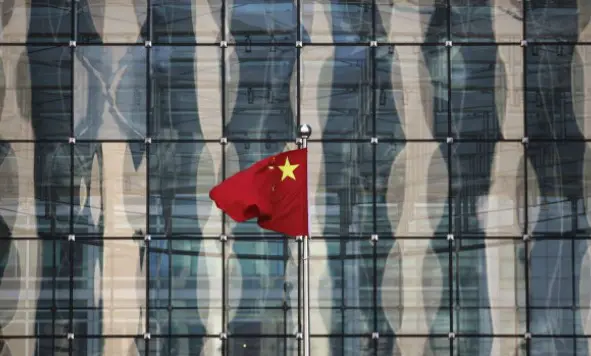Hong Kong retail investors are increasingly pessimistic over the likely direction of the stock markets in the rest of the year, with nearly 90 per cent now expecting the Hang Seng Index to trade below 22,000, JP Morgan said on Monday.
The US bank’s Investor Confidence Index, a private gauge of Hong Kong investor confidence, highlights three key risk factors over the next six months: China’s cooling economy, the possibility of a tightening in policy by the US Federal Reserve, and the yuan’s depreciation.
The index slipped to 104 in June from 110 in March, said Marcella Pun, head of retail distribution at JP Morgan Asset Management (JPMAM).
“Investors have become more cautious and plan to hold more cash over the rest of this year, as uncertainty appears to be rising,” Pun told a news briefing.
A visitor takes photos at the Harbour City in Tsim Sha Tsui of Hong Kong on July 12, 2016. Photo: Xinhua
Conducted last month, the survey polled 500 retail investors who have at least five years of continuous investment experience and a minimum of HK$100,000 of liquid assets.
Of those, 87 per cent predict the Hang Seng Index to be trading at below 22,000 by the year end, compared with 72 per cent in the company’s first quarter’s survey.
Twelve per cent of investors said they planned to be overweight in cash, versus 8 per cent in the first quarter, while only 9 per cent plan to be overweight in equities, compared to 15 per cent in the previous survey.
Among the risk factors, China’s economic slowdown is considered as the biggest threat in the next three months, followed by continual weakening of external economies and lack ofa significant growth engine in Hong Kong stock markets, the survey showed.
Concerns also linger over a possible rate hike by the Fed later this year.
“China’s economic growth has been propped up by property and infrastructure growth, but we are concerned about the fourth quarter, when the policy stimulus is expected to fade away,” added Ben Luk, a strategist for global markets at JPMAM.
At the end of last week, China reported its economy expanded 6.7 per cent in the April-to-June period, unchanged from the previous quarter and slightly above market expectations.
Fixed-asset investment grew 9 per cent, while private sector investment gained 2.8 per cent.
However, Luk said that growth was largely driven by government stimulus and the two pillars of growth, property and infrastructure investment, could lose momentum.
“If both activities slow down in the fourth quarter, the People’s Bank of China might consider additional policy easing,” Luk said.
If that happened, the PBOC might conduct one cut in key interest rates by 25 basis points by year-end, he forecast.
Luk expected the yuan to depreciate at a modest pace in the second half, reaching 6.8 against the US dollar by year end.
He said December could be “an open opportunity” for the Fed to hike if data justifies further strength in the US economy.
According to the survey, 59 per cent of investors believe a US rate hike would have a negative impact on global markets.
“Volatility is expected to grind higher throughout the rest of 2016,” Luk said.
He suggested a balanced portfolio between equities and bonds, with a preference towards credit.
US investment grade corporate bonds and Asian bonds could be two suitable investment options in today’s environment, he added.
(SOUTH CHINA MORNING POST)
 简体中文
简体中文

